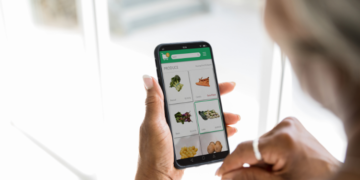
Math opportunities are everywhere! Singing songs about numbers, building with Legos, sorting, and counting things are fun ways to incorporate math into your Kid’s daily life. You might be surprised to know how many math opportunities you can offer your kids in a creative way that you’ve never thought of! Trying fun-filled math activities with your child will help them grow their interest in maths, and you’ll be surprised to see the results.
Kids must practice math even when they don’t want to; one way to do that effectively is by integrating maths into your Kid’s everyday life in the most creative ways possible. It will make them spend more time doing these activities and eventually improve their problem-solving skills.
Discussed below are some of the innovative and creative ways you can integrate math into Childrens’ life and encourage mathematical thinking in them:
Counting Activities for Children
From the number of steps on a staircase to Cheerios in a bowl, kids can count things around them if encouraged. They can measure numbers by weight, size, and even height. If you want to make counting fun and interactive, teach your child to compare numbers, such as the more-than, less-than, and same-as relationships. Counting activities can also be as simple as putting a chart together or writing down the last number you see.
Counting is a great way to reinforce math concepts. There are dozens of ways to count objects in your child’s environment. A cardboard box can be used to make a tunnel, and it can help your child learn about how things fit together and how their bodies relate to other objects. When the tunnel is complete, teach your child how to count by placing objects in different positions.
Just look around your home or school for opportunities to practice math with your child! If you are looking for the best school in Vadodara, make sure it offers fun ways to learn and develop.
Singing Songs That Involve Counting
Counting songs are an excellent way to teach children about numbers and the concept of addition and subtraction. Many songs are available for toddlers to learn to count. Examples of these songs include “One, Two, Buckle My Shoe,” “This Old Man,” and “The Animals Came in Two by Two.” In addition to the lyrics, singing songs involves learning about the upbeat and downbeat. Children quickly become aware of the difference between high and low pitches.
The use of songs or music has always been effective in teaching toddlers new things. Young children learn by repetition and often find the rhythm of the songs appealing. Singing along to songs is also a great bonding experience. Parents from all cultures sing to their infants to calm them and provide comfort. Make up your songs or modify the words of familiar children’s songs.
Whether it is math or any other subject or learning area, it’s essential to practice fun-filled activities with your child to enhance their concept development.
Getting along with Math with Legos
Using LEGOs, there are many different creative ways to integrate math into your child’s life. If you are looking for ideas to incorporate math into your child’s life, you can always look up some online activities. LEGO offers a great way to build a strong bond with your child and develop their math skills in the long run. Assigning numerical values to your Kid’s LEGO blocks will keep them around math every time they try their creativity with LEGO.
LEGO math can be a great way to introduce your child to numbers and how to tell time. You can also use LEGOs to teach skip counting by using the studs on the LEGO bricks. Most students have trouble understanding analog clocks in today’s digital world, but LEGOS makes this concept easier to understand. Using LEGO blocks, your child can practice counting and the idea of time.
Making good and intelligent use of LEGO can help your child know and understand the concept of numbers more efficiently and effectively in an exciting way.
Sorting Activities for Children
Using everyday tasks as an opportunity to integrate math learning into your child’s life is simple. Even everyday activities, such as putting away laundry, can be an opportunity to teach positional words. For example, if your child is two years old, let her set out the napkins while he counts them as he goes. Similarly, you can include math talks while you are cooking, cleaning, eating, or practically doing anything.
Making math games fun can help children remember math concepts and associate them with positive emotions. By making the math learning process a fun-filled experience for your kids, you can promote their sorting, counting, and problem-solving skills. This can be conveniently done by incorporating the subject into everyday chores.
Using large-group activities like filling containers or sorting items are great ways to teach your child about counting.
Calendars for Math Practice
Calendars can effectively be used to teach your kids about math in exciting ways. A simple way to introduce mathematical patterns with a calendar is to use cut-outs of the days of the week. When it comes to calendars, the best ones for your child depend on how they learn, the child’s age, and how deeply you want to teach them. You can even try creating small paper calendars or drawing pictures of the weather every day.
Calendars can reinforce essential mathematical concept development in your kids. While it may seem like a simple activity, calendars provide a powerful learning tool for young children. Also, nesting boxes, empty cartons, or different-sized cardboards are great for teaching the relationships between numbers, shapes, and sizes.
Integrating math into your child’s life at an early age will help them develop problem solving skills and other valuable skills like counting, sorting, patterns, and sequences.
Final Conclusion
Incorporating math activities into your child’s day can be as simple as reading a book or playing with a toy. Look for fun books with math themes to make your child fall in love with mathematics! If you want to cultivate a positive attitude towards math in your child, try integrating such fun-filled activities related to math in your child’s life. Many schools start developing a basic understanding of numbers through play. By providing children with opportunities to count and sort items, parents and teachers can develop early mathematical and problem-solving skills.
























































